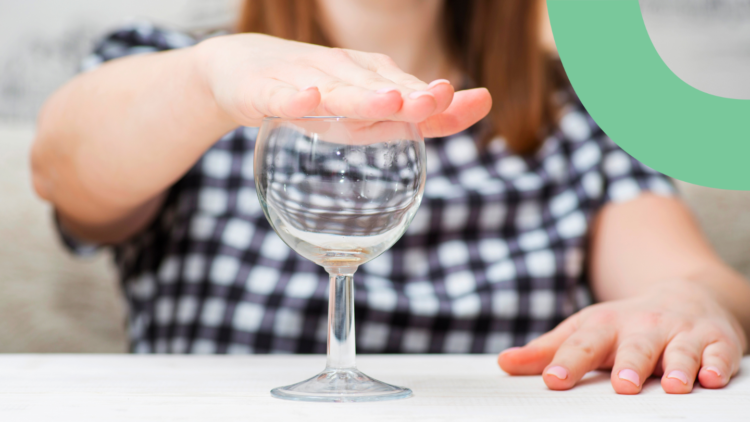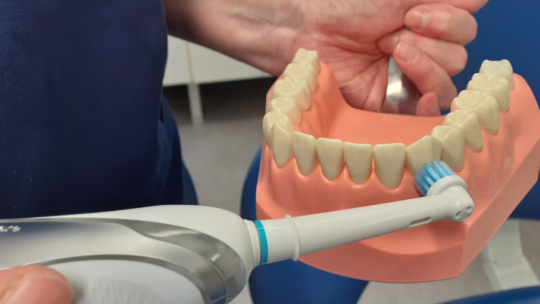Making decisions moderates alcohol consumption

During the summer there are very many situations where alcohol is present, such as during holiday trips, weddings and other celebrations, like parties, cottage evenings, etc. On vacation, routines are broken and the following day’s responsibilities are not there to guide behaviour. Of course, even Friday is enough to break routines and can lead to an increase in alcohol consumption.
“Well, let’s have one more for the road!”
However, the time or opportunity to drink is only one factor affecting consumption. Social therapist Susanne Hongell urges people to also think about their reasons and motivation for drinking alcohol.
– Is it a habit that you need alcohol to relax, that is, you seek confirmation of a feeling? Or is consumption related to a crisis and the fact that you would like to feel free of your burden even for a moment, i.e., there is a need to distance yourself? Will alcohol become a solution model?
Group pressure is not only a problem for young people, since it can also be difficult for an adult to say “no thanks” or “I’ve had enough “ in a group that is drinking alcohol.
– You don’t have to think about what the others are thinking. In this respect, the culture has already changed for the better. Creating the right atmosphere is everyone’s responsibility. It’s okay to say I’m not drinking today, encourages Hongell.
Choose and decide in advance
Moderate alcohol consumption can be supported through your own choices. This can be done, for example, by not including alcohol in household shopping runs, and by not having large quantities of it sitting around in the cupboard.
– You don’t have to have a lot of drinks hidden at home for all your relatives, says Hongell.
You should think about your own consumption habits in advance, and when organising a barbecue evening, for example, decide what and how many portions to drink. Do you choose mild alcoholic drinks instead of strong ones, or perhaps you might consider whether the punch could be a refreshing non-alcoholic mocktail instead.
Alcohol is often associated with situations where the intention is to have fun. Hongell urges us to think about whether alcohol is really needed to relax and have a good time. Would it be possible to think of something else to do?
– You shouldn’t need alcohol to be able to have fun together. Although alcohol is not a problem for the majority of the population and consumption is not too high, Hongell still encourages people to stop and examine their own drinking habits.

Lack of control indicates a problem
It is a very individual matter as to when alarm bells should start ringing. Hongell emphasises that it is impossible to set a single limit or measure. There is no completely risk-free level of consumption, but the level of reasonable risk is considered to be seven alcohol doses for women and 14 for men per week. For example, one cider is one serving.
– Tolerance depends on the starting level, but problems and addiction always start to develop from some level. Tolerance can develop quickly, says Hongell.
When alcohol use increases and lasts longer, unpleasant things start to happen, such as problems in relationships, accidents and violence. They are clear signs of a problem.
– If you tell yourself that you will only drink a little but end up drinking a lot. Or if you think you’re only going to drink today but end up drinking for several days in a row. How many days can you go without alcohol? If control is lost, it is an addiction and then we talk about a disease, Hongell explains. – If other people, loved ones, friends and colleagues, start to say and point out your alcohol use, you should take it seriously. And if you are worried about someone else, you should say it specifically from this point of view, without criticising them, Hongell advises.
Help is available
If you are worried about your own alcohol consumption, you should seek help in time. Low-threshold online services help in assessing the situation and offer support in managing alcohol use.
The Wellbeing Services County of Ostrobothnia also has the Terapianavigaattori.fi online service (in Finnish and Swedish). By completing the assessment questionnaire, you will receive a description of your own situation and a code that can be used to share the description with a healthcare professional.
– If the self-help instructions are not enough, you should turn to occupational health, if possible. You can get help from the psychosocial services of the wellbeing services county, and relatives can also contact them if home life becomes difficult because of alcohol, advises Hongell.
Facts about alcohol consumption
– In Finland, alcohol is the most used intoxicating substance; the majority of the adult population of Finland uses alcohol at least sometimes. Alcohol consumption by minors has decreased significantly in the 21st century.
– The total alcohol consumption of Finns is about 9 litres of 100% alcohol per year for every resident over 15 years of age.
– Alcohol has been found to be linked to at least 200 diseases. Alcohol use often results in liver, heart and brain diseases. Alcohol also causes cancer.
– The risks associated with alcohol consumption increase with the amount and frequency of drinking. Early symptoms, such as stomach problems, sleep difficulties or high blood pressure, are not often considered to be a link to alcohol consumption.
Source: https://ehyt.fi/en/
